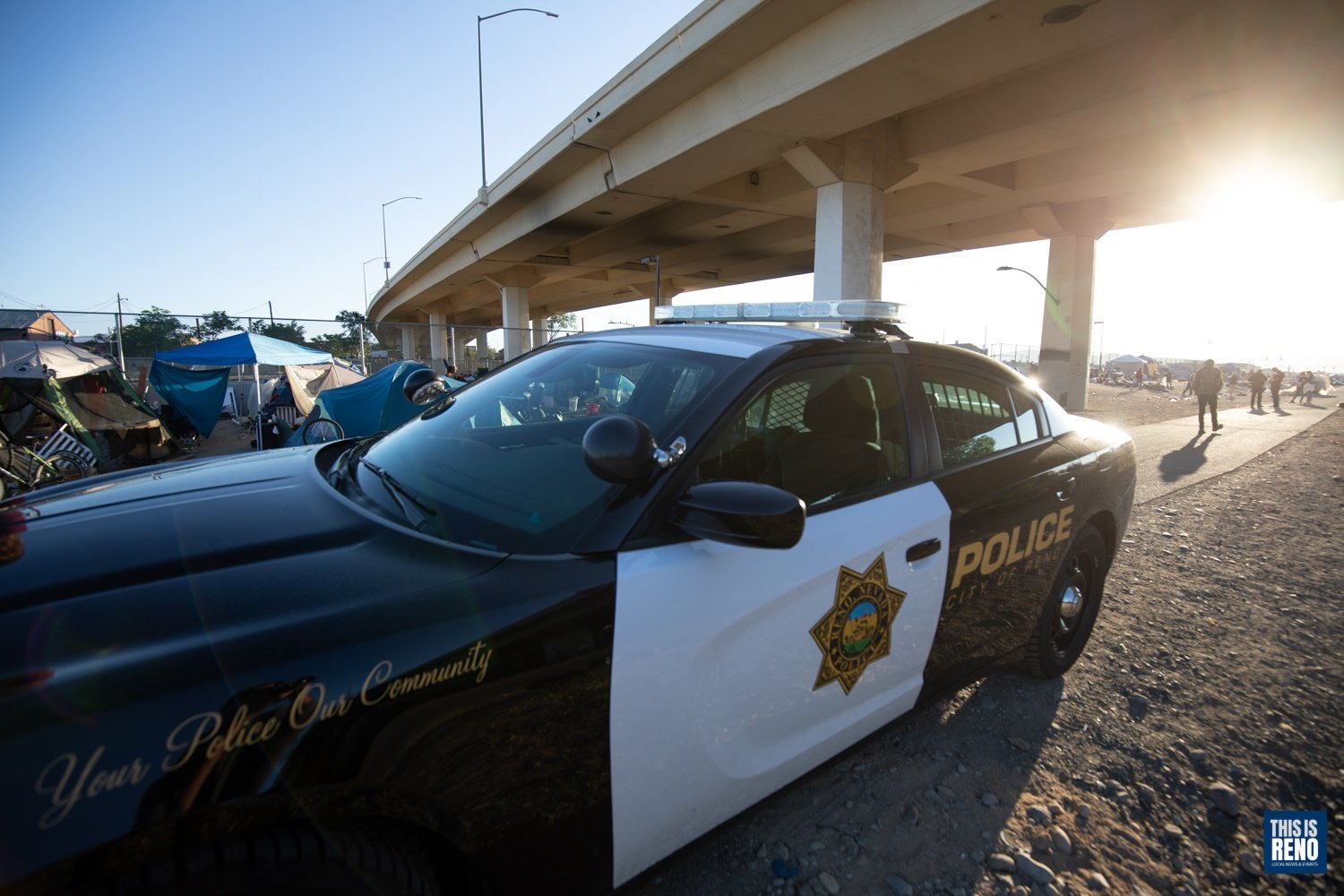Nevada Attorney General Aaron Ford presented on Thursday a bill that would make it more difficult for law enforcement officers in the state to get “no-knock” warrants. Such warrants allow officers to use force to enter people’s residences with no warning and have come under fire in the past year.
Ford told members of the Assembly Committee on Judiciary that Senate Bill 50 was drafted in response to the killing of Breonna Taylor by Louisville, Kentucky, police officers who executed a no-knock warrant at her address on March 13, 2020.
After entering Taylor’s residence and being met with what has been described as a single warning shot from her boyfriend who said he thought the officers were intruders, officers returned fire with a total of 32 shots, six of which hit Taylor. The city of Louisville in September settled a wrongful death lawsuit with Taylor’s family for $12 million.
SB 50 would prohibit no-knock warrants for things like simple drug possession, property crimes and other misdemeanors.
Ford told legislators that some Nevada law enforcement agencies already have policies that make receiving the go-ahead for a no-knock warrant a rare occurrence. He said SB 50 would put those same requirements into law.
“When we seek and execute a no-knock warrant, we should be held to a higher standard.”
The measure would not entirely ban no-knock warrants. Officers would still have the ability to execute them in cases involving felony charges that involve an “imminent threat to public safety,” Ford explained.
Chief of Staff for the Attorney General’s office Jessica Adair said no-knock warrants are and will remain available in cases where a suspect has demonstrated that she or he might become violent toward law enforcement officers, making announcing their presence more dangerous.
In such an instance, officers would still need to identify themselves as police as soon as practicable and have their body cameras on. Those conditions are in addition to provisions of the bill that would require them to make a final determination of whether or not a no-knock warrant was required upon arriving at a scene.
Assistant Attorney General Kyle George said no-knock warrants would be executed by officers trained in the rules pertaining to them.
A no-knock warrant requires approval from the court to be executed, and SB 50 provides for judicial penalties in the event an officer deliberately misstates or omits information and facts to get one.
“When we seek and execute a no-knock warrant, we should be held to a higher standard,” George said.
Assembly member Philip O’Neill of Carson City, who worked several decades in law enforcement, asked Ford and the other SB 50 presenters if an officer falsifying information to get a no-knock warrant would void all evidence obtained during the execution of one.

Ford said that it could, indeed, result in the arrest or evidence collected being voided and barred from court. He and Adair stressed, however, that falsifying information on an application for a no-knock warrant would amount to perjury on behalf of the officer who submitted it.
The committee did not take action on SB 50. The bill passed out of the Nevada Senate on April 20 in a unanimous vote. Ford said he hoped the bill would pass through the Assembly unanimously as well.
SB 50 is supported by the Las Vegas Metropolitan Police Department, the Progressive Leadership Alliance of Nevada, Make it Work Nevada, the Clark County and Washoe County Public Defender’s offices, the ACLU of Nevada, Battle Born Progress and others.
Among those who called in to the committee meeting to provide testimony in support of the bill was Erick Spratley, the executive director of the Nevada Sheriffs’ and Chiefs’ Association. Also on hand to provide testimony in support was Eddie Abelser of the Nevada Police Union.
Others who provided testimony in support were family members of people who’ve been killed in police interactions.
Annemarie Grant, whose brother, Thomas Purdy, was killed by officers at the Washoe County Jail in 2015 told the committee she considers no-knock warrants to be “death warrants.” She said she supported SB 50 but would like to see no-knock warrants banned entirely.
No testimony was offered in opposition to SB 50.

